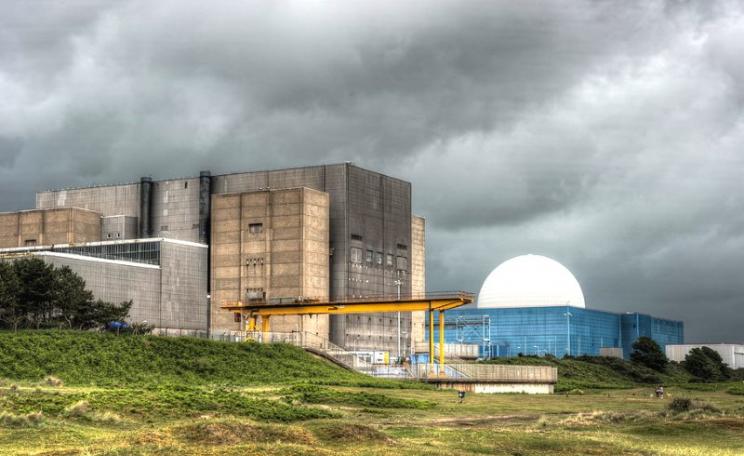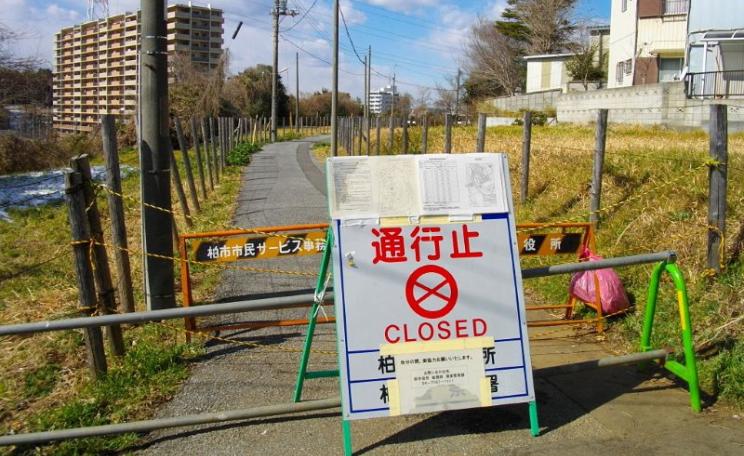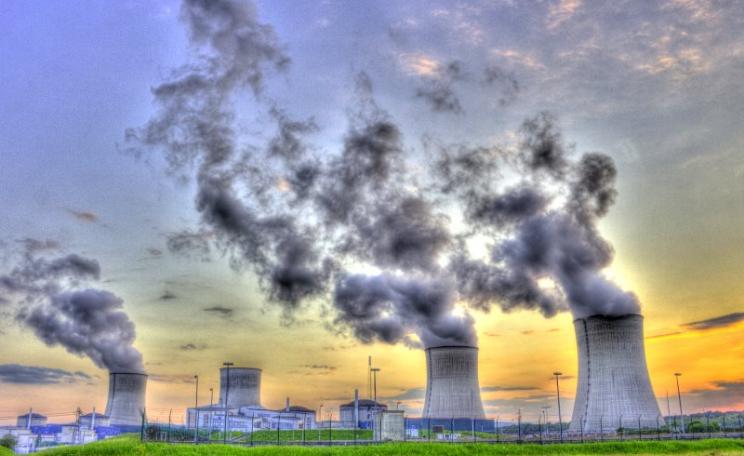GMB would better serve its members by promoting our renewable future, and recognising nuclear power as a failed technology. Photo: Walnet offshore wind farm by David Dixon via Wikimedia / Geograph (CC BY-SA).
We feel sorry for those who lose their jobs but your members would be better served by GMB joining union-academic initiatives which seek to steer unions towards the undoubted jobs bonanza among renewables.
Dear Gary Smith (GMB National Secretary for Energy),
The undersigned are scientists, academics and energy policy analysts who read with concern your Press Release objecting to the Austrian Government's appeal against the UK Government's proposed subsidies to the planned Hinkley Point C (HPC) nuclear station. Your statement contains several misconceptions, unsupported assertions and inaccuracies.
Let's start with your view that HPC is "much needed". It isn't: UK electricity demand is steadily declining. In fact it has declined 14% since 2000, while GDP has increased 18% in the same period.
It's true that some coal-fired stations will be closing over the next few years, some of which may need replacing by quick-to-build gas-fired stations and an array of renewable sources. But there's no way new nuclear could make any contribution in the next decade.
Maybe you should seek another legal opinion?
Second, you allege the Austrian appeal is "almost certainly doomed to fail". The opposite is the case: the Austrian Government has retained a team of about a dozen European lawyers - experts in EC Competition Law.
They have been assessing this case since November last year and consider the appeal to be very robust and likely to succeed: the EC's decision flies in the face of several European Directives, Policy statements, and previous EC decisions. And it is not just Austria: Luxembourg will be joining shortly, and several European renewable energy utilities also launched their appeal today.
You state Austria's appeal is "more about playing to a domestic audience rather than a serious challenge to stop new nuclear in the UK." On the contrary, Austrian Government's press statement of July 6 is clearly serious in opposing nuclear - not just in the UK but in the rest of Europe.
As the Austrian Chancellor stated: "Nuclear power plants are dangerous, expensive, and compared with the technologies of the future like wind and solar energy, are neither economically nor ecologically competitive."
Technical failures, reluctant investors
But it's not just the Austrian appeal. Hinkley suffers from a phalanx of financial and technical problems as well. The financial, legal and technical situations at the two EPRs under construction in Finland and France are simply disastrous.
In addition, AREVA is effectively bankrupt and EDF is €34 billion in debt: their share prices have plummeted to near zero and their bonds have junk status. See the many technical and regulatory problems facing Hinkley C.
We feel sorry for those who lose their jobs but your members would be better served by GMB joining union-academic initiatives which seek to steer unions towards the undoubted jobs bonanza among renewables.
But the acid test is the actions of Areva and EDF. EDF has halted site preparation at Hinkley C, dismissed the workers and closed its offices there. And Areva recently decided to test to destruction a steel pressure vessel dome already constructed and destined for Hinkley.
This means a new dome would have to be recast adding another two to three years and even more uncertainty to the project. In reality, it's an implicit acknowledgement by Areva that Hinkley C is unlikely to be built. It looks as if this is less a case of the UK deciding to abandon HPC - and more a case of it being unable to be built at all.
You state: "Of course the anti-nuclear lobby in the UK will welcome the challenge hoping it will help their policy of trying to 'suffocate' investment." But there isn't an anti-nuclear 'lobby' in the UK, unlike the massive pro-nuclear lobby. Your notion that several local groups stopped nuclear investment is far-fetched.
What is true is that UK banks, international funding agencies, other UK energy companies, and foreign governments (apart perhaps from China) have all steered well clear of the HPC project, but that's because in their view new nuclear is grossly uneconomic. As regards the possible involvement of China, many independent observers, including yourselves, have objected to the inherent dangers here.
Don't nail your members' future to a sinking ship
Nuclear is in decline not just in the UK but in the rest of the world. It's shedding employment by the cartload, eg the recent loss of a quarter of Magnox Electric jobs. We feel sorry for those who lose their jobs but your members would be better served by GMB joining union-academic initiatives which seek to steer unions towards the undoubted jobs bonanza among the renewables.
Your union should also look at Germany whose non-nuclear energy policies have resulted in 440,000 direct jobs in its burgeoning renewable energy (RE) industries. And there are about 7.7 million RE jobs worldwide. It's about time the unions looked to the future than the past on energy policy, and the Labour Party too.
We are former union officials, or have worked closely with unions, or are broadly sympathetic to the aims of unions and their members.
Yours sincerely,
Dr David Elliott, Emeritus Professor, Open University
Dr Ian Fairlie, Independent Consultant
Jonathon Porritt, Author and Activist
Ian Ralls, Joint Co-ordinator, Friends of the Earth Nuclear Network
Peter Roche, Edinburgh Energy & Environment Consultancy
Alan Simpson, Energy Policy Advisor: former Labour MP (1992-2010)
Peter Wilkinson, Director, Wilkinson Environmental Consulting.
GMB responds: 'Hinkley Point C Should Go Ahead'.






